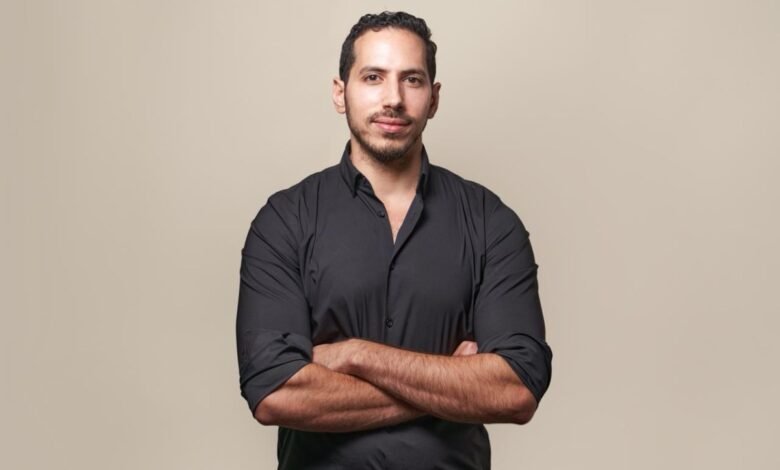
▼ Summary
– Khalid Ashmawy founded Munify, a neobank for Egyptians abroad, to provide faster and cheaper remittances after experiencing costly and slow transfers himself.
– Munify recently joined Y Combinator’s Summer 2025 batch and raised $3 million in seed funding, standing out as a non-U.S. and non-AI-focused startup.
– The platform allows Egyptians overseas to send money home instantly and offers residents U.S. banking access to hedge against currency volatility.
– Munify operates on a dual consumer and business model, with revenue from FX spreads, interchange, and payment flows, and plans to expand across the Middle East.
– Y Combinator backed Munify due to its focus on solving a significant remittance problem, similar to past investments in financial infrastructure startups.
For Egyptians living and working abroad, sending money home has long been a slow and costly process. Khalid Ashmawy experienced this firsthand during his student years in Europe, an experience that stayed with him even as he built a career at tech giants like Microsoft and Uber. That personal frustration eventually led him to create Munify, a neobank designed specifically to streamline cross-border financial services for the Egyptian diaspora and local residents alike.
Ashmawy recalls wiring $400 to his family in Cairo only to watch $40 vanish in fees while the transfer crawled through the system for days. Years later, despite working at some of the world’s most innovative companies, he found that the remittance experience had hardly improved. That lingering inefficiency inspired him to launch Munify, aiming to deliver faster, cheaper, and more integrated financial solutions.
Earlier this year, Munify was accepted into Y Combinator’s Summer 2025 cohort, a notable achievement for a non-U.S. startup in a batch dominated by AI-focused ventures. The company also secured $3 million in seed funding from Y Combinator and regional investors like BYLD and DCG. For Ashmawy, the mission is personal. “Banking wasn’t built for people like me,” he explains. “It’s costly, slow, and fragmented. This is a problem I lived, and one that resonates with millions.”
Born and raised in Egypt, Ashmawy developed a passion for software early on. A scholarship brought him to Europe, where he earned two master’s degrees before spending seven years as an engineer and team lead at Microsoft and Uber. Those roles exposed him to disruptive technologies and the startup world, eventually leading him to co-found Huspy, a Founders Fund-backed proptech company focused on mortgages in the Middle East.
After leaving Huspy in 2022, Ashmawy turned his attention back to the financial challenges faced by immigrants. He noticed platforms like LemFi in Nigeria and Aspora in India gaining traction by simplifying remittances for their diasporas. With Egypt receiving nearly $30 billion in annual remittances, he saw a clear opportunity to build a tailored solution.
Munify offers Egyptians abroad, particularly in the U.S., U.K., Europe, and the Gulf, a way to send money home instantly and at significantly better rates than traditional options like bank wires or services such as Western Union. The platform also enables businesses, freelancers, and remote workers in Egypt to open U.S. bank accounts and access dollar-denominated cards using only their local ID, helping them manage currency volatility and receive international payments smoothly.
A key differentiator, according to Ashmawy, is that Munify is building its own banking infrastructure rather than relying on third-party providers. “We’re connecting banking systems directly across borders,” he says. Though the platform launched just two weeks ago, it has already attracted thousands of users through word of mouth alone.
On the enterprise side, Munify has signed contracts with mid-sized and larger companies, projecting over $50 million in monthly cross-border volume. The startup operates a dual model: serving individual consumers with remittance and banking services, while offering APIs for businesses to send and receive international payments. Revenue is generated through FX spreads, interchange fees, and payment flows.
Looking ahead, Munify plans to expand beyond Egypt into other Middle Eastern and neighboring markets, gradually building a connected regional banking network. For Y Combinator, the investment represents a return to its roots of backing startups that tackle fundamental financial infrastructure challenges, similar to earlier bets on companies like Stripe and Coinbase.
Ashmawy believes the strength of Munify’s proposal lay in its focus on a real and urgent problem, rather than riding the latest tech trend. “If you’re solving something big and painful,” he notes, “that’s what truly matters, whether the hype is around AI or not.” With his blend of personal experience, technical expertise, and a proven track record in scaling startups, Ashmawy is well-positioned to transform how Egyptians around the world move and manage their money.
(Source: TechCrunch)

